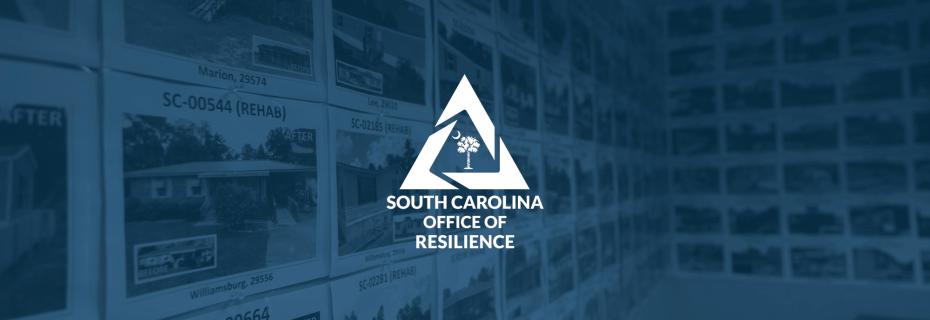About Us
 The Official Web Site of the State of South Carolina
The Official Web Site of the State of South Carolina
Please visit SCEMD website for winter weather updates.
Hurricane Helene overview information here | SCOR Disaster Case Management Services: 1-803-898-2511
Applications open September 1, 2025 - February 13, 2026 for Hurricane Helene CDBG-DR Mitigation Set-Aside Program here.
Applications open January 1, 2026 - March 31, 2026 for HUD CDBG-MIT Voluntary Buyouts here.

The City of Charleston held a groundbreaking ceremony for the forthcoming Ehrhardt Street Tunnel Extension project on Friday morning. The SC Office of Resilience (SCOR) was proud to join Governor Henry McMaster, City of Charleston Mayor John Tecklenburg, U.S. Department of Housing and Urban Development Regional Administrator José Alvarez, and Medical University of South Carolina (MUSC) President Dr. David Cole to celebrate the kickoff of this historic project.
The Ehrhardt Street Tunnel Extension will consist of a 54-inch diameter drop shaft and 900 linear feet of an 8-foot diameter concrete tunnel that is designed to pump stormwater out of the Charleston Medical District, an area which experienced 89 tidal flooding events in 2019 alone and which is projected to experience this type of flooding as frequently as every other day by 2045, according to the National Oceanic and Atmospheric Administration (NOAA). The extension will connect to the existing US-17/Spring-Fishburne Project.
Governor McMaster was instrumental in creating a partnership between local, state, and federal agencies to bring funding to the City of Charleston for the project. SCOR awarded the city $9.9 million in Mitigation Community Development Block Grant (CDBG-MIT) funding, a U.S. Department of Housing and Urban Development (HUD) program designed to provide a means for grantees to implement preventative measures against future disaster risks. The City of Charleston will provide $5 million.
“We are very proud to play a role in making this extension project a reality,” said Chief Resilience Officer Ben Duncan. “The sprawling Medical District provides critical services for more than 400,000 patients annually and employs more than 25,000 people, with 1 in 4 patients served being of low-to-moderate income. The Ehrhardt Street Tunnel Extension is an important step in reducing interruption to these services by helping alleviate persistent flooding issues in the Medical District.”
Construction on the Ehrhardt Street Tunnel Extension is expected to begin in the summer of 2022 and be complete by the end of 2023.
View a complete list of Mitigation projects here.